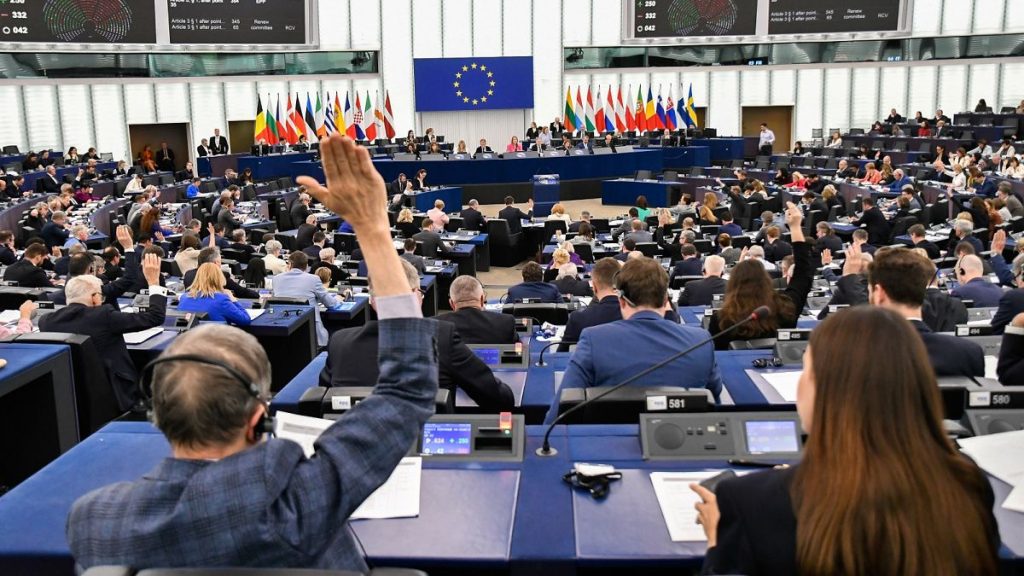As Members of the European Parliament gathered in Strasbourg for the last plenary session before June’s elections, the presidents of major political groups reflected on the highs and lows of the past five-year mandate. Manfred Weber, chairman of the centre-right EPP group, highlighted restarting the European economic engine after the COVID-19 pandemic and the decision to establish the €723.8 billion Recovery Resilience Fund as significant achievements. He also mentioned measures to curb climate change as a highlight, despite his EPP party facing backlash for recent opposition to the Green Deal. Weber criticized the Parliament’s failure to support the Spitzenkandidaten process, which led to Ursula von der Leyen becoming Commission president in 2019.
Iratxe García Pérez, president of the Socialists and Democrats group, praised the legislature for successfully handling challenges like Brexit, post-pandemic recovery, and the EU response to the war in Ukraine. She lauded the approval of the first EU law combatting violence against women and emphasized the importance of maintaining focus on priorities like the green agenda, rule of law, and European social policies. García Pérez criticized the failure to conclude the Nature Restoration Law, which aims to reverse biodiversity loss in the EU, as a significant low point for the mandate.
Philippe Lamberts, co-president of The Greens group, expressed pride in shaping the Green Deal and pushing for EU transition to meet global planetary boundaries. He criticized the new fiscal rules and the asylum and migration pact as failures, describing the former as a “fiscal straitjacket” that could impede Green Deal goals and supporting Ukraine. Lamberts believed the asylum and migration pact would not solve issues and would undermine European values.
Nicola Procaccini, co-president of the European Conservatives and Reformists group, commended the parliament’s response to Russia’s invasion of Ukraine, citing sanctions and aid as key successes. He criticized the development of the Green Deal without considering the impact on people as a significant error. Procaccini also emphasized the importance of avoiding events that could have escalated the conflict in Ukraine and affected Europe as a whole.
Marco Zanni, president of the Identity and Democracy group, highlighted the group’s success in bringing its priorities to the parliament’s agenda despite being a minority group. Issues such as immigration, farmer protection, and a pragmatic approach to the Green Deal were raised by Zanni. He criticized the parliament’s cordon sanitaire, a barrier meant to limit the influence of far-right parties, as its biggest downfall and called for inclusivity despite differing political ideas.
In conclusion, the reflections of the presidents of major political groups in the European Parliament highlighted a range of achievements and failures during the past five-year mandate. Successes included responding to challenges like the COVID-19 pandemic, Brexit, and the war in Ukraine, as well as shaping policies like the Green Deal and combatting violence against women. However, failures such as the rejection of the Spitzenkandidaten process, the Nature Restoration Law, and the asylum and migration pact were also significant points of contention. Moving forward, addressing these challenges and fostering inclusivity while respecting diverse political ideas will be crucial for the future of the European Parliament.


